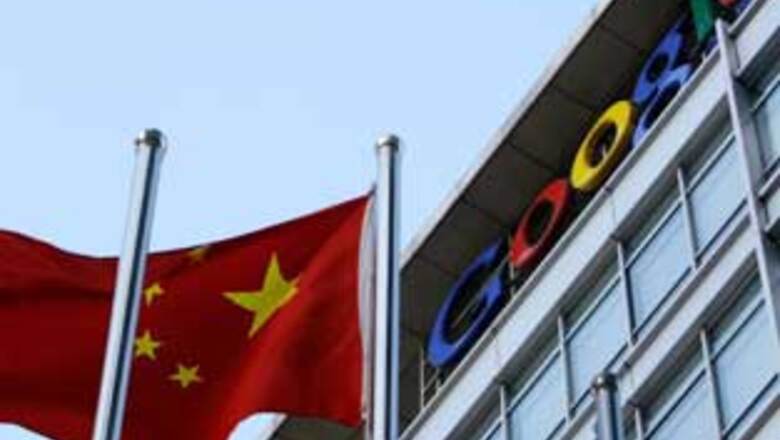
views
Beijing: Google on Tuesday postponed the launch of its mobile phone in China, adding to the potential commercial fallout of its dispute with Beijing over internet censorship and e-mail hacking.
"It is postponed," Google Inc spokeswoman Marsha Wang said. A launch ceremony with local carrier China Unicom Ltd. on Wednesday was cancelled, she said, but declined to give a reason or say when the launch might be rescheduled.
Another person briefed on Google's decision said it was linked to the dispute with Beijing. The company concluded it would "not be a good experience" for consumers to receive a phone right now with its applications, said the person, who spoke on condition of anonymity due to the sensitivity of the issue.
China has the world's most-populous mobile phone market, with more than 700 million accounts and increasingly prosperous customers who readily pay for the latest technology and services.
Meanwhile, the government said Google must obey China's laws and traditions, suggesting it was giving no ground in talks over Internet censorship and the US search giant's possible withdrawal. It was the first time the government has referred to Google by name since its January 12 announcement that it would no longer censor search results in China and might shut down its China-based site Google.cn.
"Foreign enterprises in China need to adhere to China's laws and regulations, respect the interests of the general public and cultural traditions and shoulder corresponding responsibilities. Google is no exception," said Foreign Ministry spokesman Ma Zhaoxu at a regular news briefing.
Beijing promotes Internet use for business and education but blocks access to material deemed subversive or pornographic, including Web sites abroad run by dissidents and human rights groups.
Free speech groups and the White House lauded Google's stance but there was no indication other companies might follow its lead and challenge government controls.
A Google pullout would be awkward for China. Chinese and foreign businesses rely on its e-mail, maps and other services based abroad. That could lead to disruptions if authorities try to retaliate by blocking access to Google's US site.
Google declined to comment on a report by the Chinese business magazine Caixin that the company has told manufacturers Motorola and Samsung to remove its logo, search engine and maps from phones being produced for the China Unicom venture.
Phone calls to Unicom's press office in Beijing were not answered. A Unicom spokeswoman in Hong Kong, Sophia Tso, said she had no information. Spokespeople for Motorola Ltd. and Samsung Electronics Co. did not immediately respond to requests for comment.
Google said last week that an attack in December from China targeted the Mountain View, California-based company's infrastructure and at least 20 other major companies from the Internet, financial services, technology, media and chemical industries.
The Foreign Correspondents' Club of China sent an e-mail Monday to its members warning that reporters in at least two news bureaus in Beijing had said their Gmail accounts had been broken into, with their e-mails surreptitiously forwarded to unfamiliar accounts. One of the accounts belonged to an Associated Press journalist.
Ma, the foreign ministry spokesman, said China strictly prohibits computer hacking in any form.
The chief executive of China's e-commerce giant Alibaba Group, which operates the China arm of Google rival Yahoo Inc., said Tuesday at a conference in Taiwan that foreign companies such as Google should not pull out of China.
"It is easy to give up, but one must hang on," said Jack Ma "China will set the rule of (the) game in the 21st century, and businesses must not go to the mainland for the profit motives only but rather to take part in setting the rules."
Yahoo turned over its China operations to Alibaba several years ago after failing to gain market share against Chinese competitors. Yahoo now owns 39 percent of Alibaba.
China also has the world's most-populous Internet market, with more than 384 million people online, bigger than the entire US population.
Google.cn, set up in 2005, trails local rival Baidu Inc., with a 35 per cent market share to Baidu's 60 per cent.

















Comments
0 comment